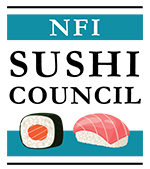A Call for Responsibility
A recent example of irresponsible and lazy journalism illustrates why science and health reporters need to be held to a higher standard.
In early October, the Archives of Pediatrics & Adolescent Medicine published a study exploring whether there is a link between seafood and mercury exposure during pregnancy and attention deficit hyperactivity disorder (ADHD)-like behaviors in children. The key finding in regards to the question that really matters — What happens when I eat fish as a whole food during pregnancy? was positive. Pregnant women who eat seafood more than twice per week, including traces of mercury, may lower their childrens risk for ADHD-like behaviors. While the study found that exposure to certain levels of prenatal mercury may be associated with higher risk of ADHD-like behaviors, eating fish can protect against this risk.
But rather than report the good news, many reporters hyped the fear:
- Times Alice Park warned, “The health risks of mercury exposure are well documented, and the harms for still-developing fetuses are particularly concerning.”
- HealthDays Randy Dotinga cautioned, In another sign of the possible dangers lurking in an environmental hazard, new research links mercury exposure in expectant mothers to attention-deficit/hyperactivity disorder (ADHD) symptoms in their children.
- Medwire News Helen Albert alerted, Contaminated fish pose dietary dilemma for pregnant women.
These reports are in essence distorting the truth because they chose to selectively report the most negative, salacious findings outside of a far more positive accurate context. More importantly, this type of reporting has consequences. Misleading reports discourage, in this case, pregnant women from eating more fish and thus robs them of the health benefits. Keep in mind, the conclusion of the report was that eating more fish during pregnancy helps prevent ADHD symptoms later; reporting on it any other way is a fundamental distortion.
This is not the first time that journalists have confused the public by skewing scientific research about seafood. While covering a recent Nordic study whose authors created a model to estimate the effects of omega-3s and mercury on heart attack risk, Reuters reporter Kerry Grens focused on the potential risks of methyl mercury. But the model estimated the heart health benefits from omega-3s outweighed negative effects from mercury unless omega-3s were very low and mercury was very high. Since both omega-3s and mercury are associated with eating fish, this is an unusual combination, at least in Western countries, the authors explicitly say in the full-text study. Furthermore, the Dietary Guidelines for Americans clearly states: health benefits from consuming a variety of seafood in the amounts recommended outweigh the health risks associated with methyl mercury, a heavy metal found in seafood in varying levels.
Either through neglect or deceit, many science reporters have routinely twisted the facts about mercury and seafood to fit a predetermined narrative dictated by eco-activists to advance a narrow agenda.
For example, a report released by the Mercury Policy Project (MPP), an eco-activist group urged schools and parents to worry about, of all things, the amount of canned tuna kids eat. Tuna is one of the most affordable and available forms of the omega-3s and lean protein required for optimal development. And according to the report itself, its average mercury levels are well-below the U.S. Food and Drug Administration level of concern. Even though MPP transparently put its environmental agenda front and center, the media failed to question how the MPP paper derived its results or how it might negatively impact the health and development of children. Coverage of the report had real negative public health consequences with at least one San Marcos, TX school district removing tuna from its menu.
There are several possible reasons why science journalists report the activists narrative so uncritically. To some extent its out of sympathy for the cause. But mostly its laziness. MITs Seth Mnookin observes, Newspapers give lots of attention to those first, eye-catching results while spilling very little (if any) ink on the ongoing research that shows why people shouldnt have gotten all hot and bothered in the first place.
Concerning the ADHD study, Harvards David Ropeik noted, coverage of this new mercury study demonstrates something more worrisome about how the media cover risk in generalIts not just the alarmist way they report things, but also a matter of which stories and facts they report, and which ones they simply dont.
Any possible nugget of harm from mercury generates excitement, but the rising and demonstrable harm shown from low seafood and omega-3 consumption such as the FAO/WHO report that underscores the heart- and brain-health risks of avoiding seafood and the Harvard study that estimates 84,000 people die annually due to omega-3 deficiency.
The medias confusing messages not only ignore but perpetuate the serious seafood deficiency in the American diet. Fish makes up only seven percent of the protein we eat in the U.S., while the 2010 Dietary Guidelines recommend 20% of the protein we eat should be seafood.
We cannot afford to heed the medias uninformed nutrition counsel because very real consequences exist. The FDA estimates that just a 10 percent drop in the already low amount of fish men and older women eat would result in 4,000 additional heart disease and stroke deaths per year.
Journalists, as well as the activists who manipulate them, should be held directly accountable for that harm because the stakes are high and the cost of negligence can be measured in lives.
We call on responsible journalists and professional science writers to apply their skepticism and critical thinking not only to the subjects they are covering but also to the coverage of their less conscientious colleagues. Only by self-policing its ranks and challenging the faulty analyses of careless reporters will the profession defend its reputation for diligence and impartiality and maintain its authority to interpret scientific matters for the public.


